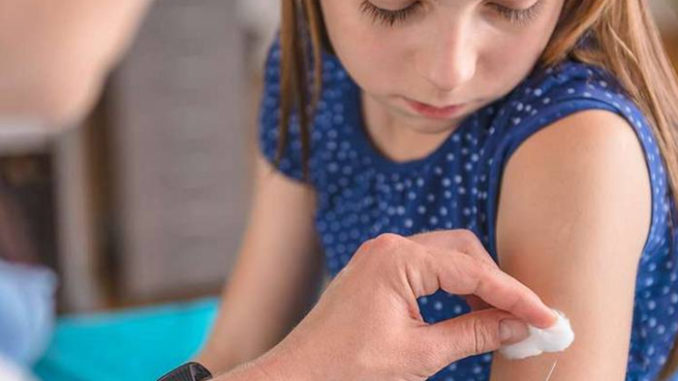
North Yorkshire health leaders say they are concerned that not enough people are vaccinated against measles – and are urging people to come forward.
The Measles, Mumps, Rubella (MMR) jab, is delivered in two doses, the first given at 12 months, and the second at about three years and four months, before children start school.
However, around one in 10 children in the county area remain at risk because they have not had both doses of the vaccine at aged five.
This means that in the average reception class there will be three children who are not fully vaccinated.
There are also concerns that rates of vaccination in York and North Yorkshire are significantly lower among gypsy and traveller communities, recent migrants and university students.
The UK Health Security Agency (UKHSA) – alarmed at the spread of measles in the Midlands, which has seen hundreds of cases – says further outbreaks of the disease will spread to other towns and cities unless there is urgent action to increase MMR vaccination uptake.
Peter Roderick, Director of Public Health at City of York Council, said: “Children who get measles can be very poorly and some will suffer life changing complications. The best way for parents to protect their children from measles is the MMR vaccine.
“I’d also recommend that students coming to universities in our area should check their vaccination status with their GP. Two doses of the MMR vaccine give lifelong protection and it’s never too late to catch up.”
Louise Wallace, Director of Public Health at North Yorkshire Council, added: “Measles spreads very easily among those who are unvaccinated, especially in nurseries and schools. It can be a very unpleasant illness and, in some children, can be very serious, leading to hospitalisation and tragically even death in rare cases.
“People in certain at-risk groups including babies and young children, pregnant women, and people with weakened immunity, are at increased risk of complications from measles.”
More than 99 per cent of people who have two doses of the MMR vaccine will be protected against measles and rubella.
The vaccine also provides protection against mumps, which can be very painful with complications including inflammation of the ovaries and testicles, and in rare cases, the pancreas. Although mumps protection is slightly lower, cases in vaccinated people are much less severe, highlighting the importance of the MMR vaccination.
Jack Lewis, consultant in public health with the Humber and North Yorkshire Health and Care Partnership, said: “While we would strongly urge parents to make arrangements for their child to be vaccinated, it’s worth emphasising the MMR vaccine isn’t just for children. It is important at any age, particularly if you have a weakened immune system or long-term health condition.
“So if you or your child are not fully vaccinated, please make an appointment with your GP practice to catch up on any missing vaccinations.”


Be the first to comment